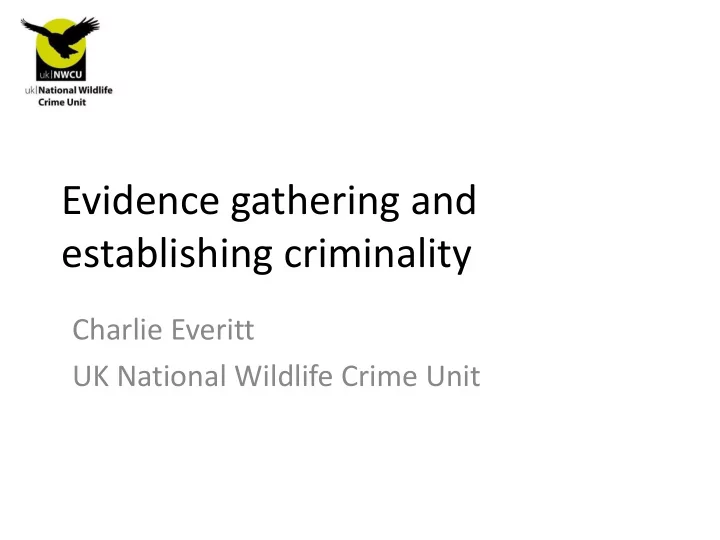

Evidence gathering and establishing criminality Charlie Everitt UK National Wildlife Crime Unit
What if I see an offence being committed?
Do consider your own safety • Take no risks • Survey the environment • Consider all actions from a personal safety perspective
Do take photos and video • If you have a camera with you take photos (or videos) of the scene. • Do not delete any.
Do record the location • Take careful note of exact locations of anything that might be useful evidence.
Do report to Police. • Even if you are not sure - report the incident. • The evidence of wildlife crime is not always obvious.
Contacting Police • If emergency or culprit(s) still at scene – dial 999 • All other occasions – dial 101
Do write down vehicle registration numbers • Don't trust to memory!
Do consider other witnesses. • It is always best if there is more than one witness to a suspected crime under Scots law. • If you are with other people, make sure that they see what you see.
Don't touch or move evidence • If something has been interfered with, it may no longer be admissible in court. • Try not to walk around the scene unnecessarily.
Don't touch dead birds or animals • May have been poisoned or could be poisoned bait. • Most substances used are extremely dangerous and you may put yourself at risk.
Never intervene if you see someone you suspect is involved in committing a wildlife crime. • This could be dangerous. • Take careful note of exactly what is happening and report it.
https://www.gov.scot/Topics/Environment/Wildlife- Habitats/paw-scotland/what-you-can-do
Intelligence Contact: • Police – 101, e-mail, via website etc • Crimestoppers – 0800 555 111
Charlie Everitt UK National Wildlife Crime Unit (e) Charles.everitt@nwcu.pnn.police.uk (m) 07917 599 690
Recommend
More recommend